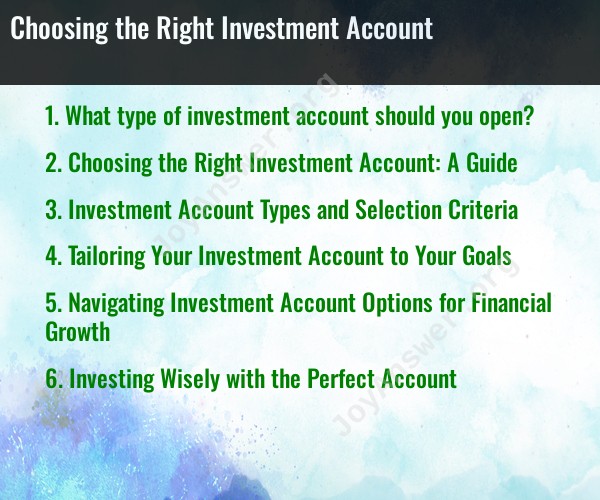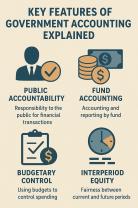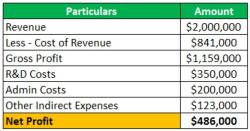What type of investment account should you open?
The type of investment account you should open depends on your financial goals, risk tolerance, and tax considerations. Here are some common types of investment accounts to consider:
Individual Brokerage Account:
- This is a standard investment account that allows you to buy and sell a wide range of investments, including stocks, bonds, mutual funds, ETFs, and more. There are no contribution limits, but gains and losses are taxable.
Individual Retirement Account (IRA):
- IRAs offer tax advantages for retirement savings. There are two main types:
- Traditional IRA: Contributions may be tax-deductible, and investments grow tax-deferred until withdrawal, at which point they are taxed as income.
- Roth IRA: Contributions are not tax-deductible, but qualified withdrawals (including earnings) are tax-free.
- IRAs offer tax advantages for retirement savings. There are two main types:
401(k) or Employer-Sponsored Retirement Plan:
- If your employer offers a 401(k) or similar retirement plan, consider participating. Contributions are typically tax-deductible, and investments grow tax-deferred. Employers may also offer matching contributions.
Health Savings Account (HSA):
- HSAs are for individuals with high-deductible health insurance plans. Contributions are tax-deductible, and withdrawals for qualified medical expenses are tax-free.
529 College Savings Plan:
- These plans are designed to save for educational expenses. Contributions are not tax-deductible at the federal level, but some states offer tax benefits. Earnings grow tax-free when used for qualified educational expenses.
Custodial Account (UGMA/UTMA):
- These accounts are typically opened for minors. They allow investments in a child's name, but the assets become the child's property when they reach the age of majority.
Simplified Employee Pension (SEP) IRA:
- SEPs are designed for self-employed individuals or small business owners. Contributions are tax-deductible and can be made on behalf of both the business owner and employees.
Simple IRA:
- A retirement plan designed for small businesses. Contributions are tax-deductible, and employees can make elective deferrals.
Solo 401(k):
- A retirement plan for self-employed individuals with no employees (other than a spouse). It allows for both employer and employee contributions.
Taxable Investment Accounts:
- These are standard brokerage accounts where there are no tax advantages, but they offer flexibility and can be used for various financial goals.
When deciding which type of investment account to open, consider the following factors:
Investment Goals: Are you saving for retirement, education, a major purchase, or something else? Different accounts offer different tax advantages and restrictions.
Tax Considerations: Consider the tax benefits or consequences of each account. For example, traditional IRAs provide a tax deduction on contributions, while Roth IRAs offer tax-free withdrawals.
Risk Tolerance: Your risk tolerance and investment horizon should align with the goals for the account. Retirement accounts often have a longer time horizon and can withstand more risk.
Contribution Limits: Different accounts have varying contribution limits, so consider how much you can afford to invest.
Employer Offerings: If your employer offers retirement plans like a 401(k), consider taking advantage of any matching contributions.
Estate Planning: Consider how the account will fit into your estate plan, especially if you're concerned about passing assets to heirs.
It's often advisable to consult with a financial advisor or tax professional to determine the best investment account strategy based on your unique financial situation and goals. Additionally, diversifying your investments across different account types can help you achieve a balanced and tax-efficient portfolio.
Choosing the Right Investment Account: A Guide
Choosing the right investment account is an important decision that can have a significant impact on your financial future. There are many different types of investment accounts available, each with its own unique features and benefits. It is important to choose an account that is right for your individual needs and investment goals.
Investment Account Types and Selection Criteria
The following are some of the most common types of investment accounts:
- Brokerage accounts: Brokerage accounts are the most versatile type of investment account. They allow you to buy and sell a wide variety of investment products, including stocks, bonds, mutual funds, and ETFs. Brokerage accounts are also known as taxable accounts, meaning that you will need to pay taxes on your investment earnings.
- Retirement accounts: Retirement accounts, such as 401(k)s and IRAs, offer tax advantages to help you save for retirement. With a 401(k), you can contribute pre-tax dollars from your paycheck, which reduces your taxable income. With an IRA, you can contribute after-tax dollars, but your investment earnings grow tax-deferred until you withdraw them in retirement.
- Cash management accounts: Cash management accounts are similar to checking accounts, but they typically offer higher interest rates. Cash management accounts are a good option for parking your money while you decide what to invest in.
- Specialty accounts: There are also a number of specialty investment accounts available, such as 529 plans and education savings accounts (ESAs). These accounts are designed for specific purposes, such as saving for college or retirement.
When choosing an investment account, it is important to consider the following factors:
- Investment goals: What are your investment goals? Are you saving for retirement, college, or a down payment on a house? Once you know your investment goals, you can choose an account that is designed to help you achieve them.
- Investment horizon: How long do you plan to invest for? If you are saving for the long term, you may want to choose an account that offers tax advantages. If you are saving for a short-term goal, you may want to choose an account that is more liquid.
- Fees: Investment accounts can charge a variety of fees, such as account fees, transaction fees, and investment management fees. It is important to compare the fees charged by different accounts before you choose one.
Tailoring Your Investment Account to Your Goals
Once you have considered your investment goals, investment horizon, and fees, you can start to narrow down your choices. Here are a few tips for tailoring your investment account to your goals:
- Retirement: If you are saving for retirement, a 401(k) or IRA is a good option. These accounts offer tax advantages that can help you save more money for retirement.
- College: If you are saving for college, a 529 plan or ESA is a good option. These accounts offer tax advantages and can be used to pay for qualified education expenses.
- Short-term goals: If you are saving for a short-term goal, such as a down payment on a house, a cash management account may be a good option. Cash management accounts offer high interest rates and are liquid, meaning that you can easily access your money when you need it.
Navigating Investment Account Options for Financial Growth
There are many different investment account options available, so it is important to do your research before you choose one. Here are a few tips for navigating investment account options for financial growth:
- Compare features and benefits: Compare the features and benefits offered by different accounts. Consider factors such as investment options, fees, and customer service.
- Read reviews: Read reviews of different investment accounts to get a sense of what other investors have experienced.
- Seek professional advice: If you are unsure which investment account is right for you, seek professional advice from a financial advisor.
Investing Wisely with the Perfect Account
Once you have chosen the right investment account, it is important to invest wisely. Here are a few tips:
- Diversify your portfolio: Don't put all your eggs in one basket. Spread your money across a variety of different investments to reduce your risk.
- Invest for the long term: Don't try to time the market. Invest for the long term and let your money compound over time.
- Rebalance your portfolio regularly: As your financial situation changes, you may need to rebalance your portfolio to ensure that it still meets your investment goals and risk tolerance.
By following these tips, you can choose the right investment account and invest wisely to achieve your financial goals.













